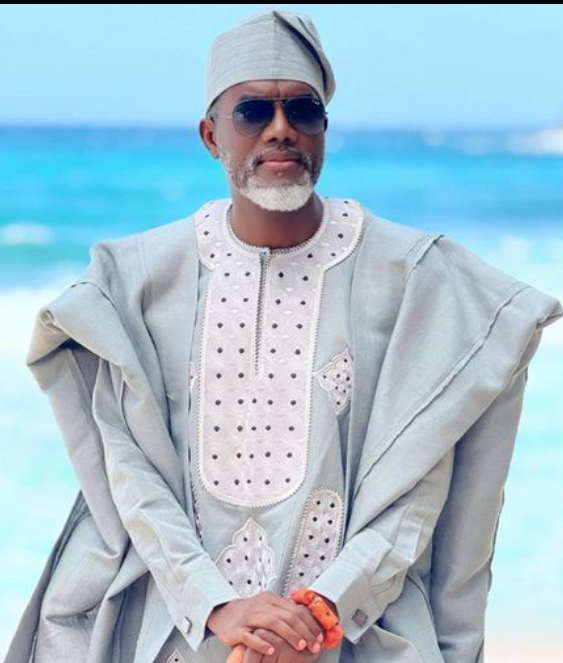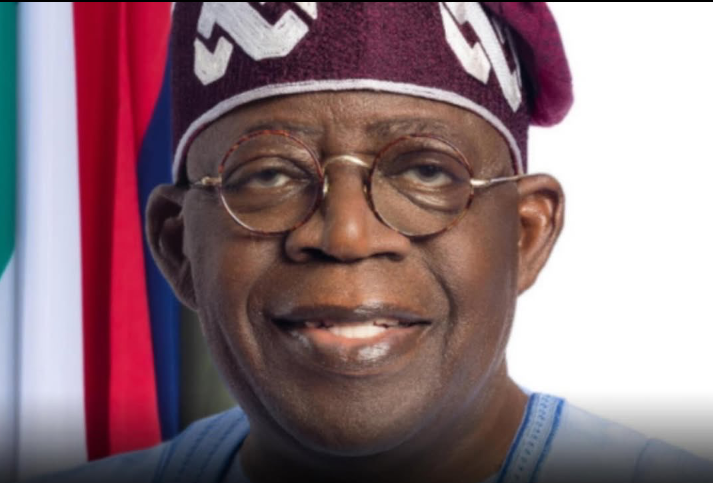
“May Nigeria Keep Happening to Me” – Reno Omokri Challenges Critics of the Nation with Bold Declaration

Reno Omokri, former presidential aide, author, and political commentator, has once again stirred up a storm on social media with his unapologetically patriotic declaration, “May Nigeria happen to me and keep happening to me as long as I live.” His statement comes in response to the popular phrase often used by Nigerians in moments of despair — “Nigeria has happened to me” — a lament that reflects the frustration and struggles that citizens frequently associate with their country. But for Omokri, this negative sentiment unfairly undermines the nation’s achievements while highlighting only its shortcomings, and he insists that Nigeria deserves to be celebrated for its progress just as much as it is criticized for its challenges.
Taking to his verified platform, Omokri argued that Nigerians are quick to attribute misfortune to the nation while claiming personal credit for any success they experience. He pointed out that good and bad are universal realities that coexist everywhere in the world, drawing attention to the fact that hardship is not unique to Nigeria. Using striking comparisons, he reminded his followers that in the United States, a country often held up as a model, over 20,000 people are murdered every year, a figure more than twice Nigeria’s homicide rate. Yet, he observed, Americans do not go around cursing their country or declaring that “America happened to them.” Instead, they remain patriotic, even when faced with severe national challenges.
Omokri’s passionate defense of Nigeria comes at a time when public discourse has been heavily tilted toward despair, with many citizens expressing frustration over rising living costs, unemployment, and insecurity. Yet, according to him, this narrative is incomplete, as it ignores the significant progress that has been made under the current administration. He highlighted recent government initiatives and economic indicators to prove his point that “Nigeria happening” is not always a negative thing.
He referenced the Federal Government’s student loan scheme, through which over 600,000 Nigerians have now gained access to higher education opportunities. He argued that this development is a clear example of Nigeria positively impacting its citizens and providing a pathway to upward mobility for many families. In his words, if Nigeria is to be blamed when tragedies occur, then it must also be credited when its policies directly improve lives.
The commentator also drew attention to economic improvements, particularly in inflation and food prices. Citing official data, he noted that Nigeria’s inflation rate, though still high, has shown a decline, dropping to 20.12% in August from 21.88% in July. While critics might dismiss this as insignificant, Omokri emphasized that such progress matters, especially when compared to nations like Argentina, whose economy is in turmoil despite being hailed in the past as a model of reform. Quoting Nigerian superstar Davido’s words, Omokri described Argentina’s current economic crisis as being “in shambles,” using it as a counterpoint to argue that Nigerians should appreciate the strides their nation has made rather than constantly belittling it.
The state of electricity supply, one of Nigeria’s most persistent challenges, was another point of optimism raised in his address. Omokri revealed that the country had broken its power generation record, hitting a peak of 5,801.84 megawatts and achieving the highest daily energy output in its history at 128,370.75 megawatt-hours. For decades, epileptic electricity has been one of the symbols of Nigeria’s underdevelopment, yet with this milestone, Omokri insists there is evidence that progress, though slow, is being achieved. “Is that not Nigeria happening?” he asked rhetorically, pushing his audience to rethink their often one-sided perspective of the nation.
Perhaps the most significant point in his declaration was Nigeria’s emergence as a net exporter of refined petroleum products. According to Omokri, when President Bola Ahmed Tinubu assumed office in May 2023, Nigeria was the largest petrol importer in Africa. Today, the story has changed, with South Africa overtaking Nigeria in fuel imports while Nigeria has successfully repositioned itself as West Africa’s leading exporter of refined petroleum products. This transformation, he argued, has already led to a reduction in fuel prices and placed Nigeria in a position of economic strength that very few could have imagined a few years ago. He credited this achievement to the current administration, linking it to a legacy shared only with the governments of late President Umaru Musa Yar’Adua and former President Goodluck Jonathan, both of whom presided over rare periods of petroleum self-sufficiency.
Reno Omokri’s bold proclamation has not come without controversy. While many of his supporters applauded his perspective as a refreshing show of patriotism, others accused him of being disconnected from the harsh realities on the ground. Critics argue that citing statistical improvements does not erase the lived experiences of millions of Nigerians grappling with poverty, insecurity, and unemployment. For them, the phrase “Nigeria has happened to me” is not merely a catchy expression but a painful reality reflecting a broken system that continues to fail its people.
Still, Omokri’s message resonates with those who believe that excessive negativity has done more harm than good for the country’s image. His stance raises broader questions about national identity, resilience, and the responsibility of citizens to uphold their country despite its flaws. He acknowledges that Nigeria is far from perfect, declaring, “This is Earth, not heaven. Earth is an imperfect place, which is why unpleasant things can sometimes happen.” In his view, expecting perfection from Nigeria is unrealistic, and focusing only on the negatives blinds citizens to the progress being made.
His declaration has since gone viral, igniting heated debates across digital platforms. Supporters shared testimonials of their own positive experiences with government initiatives, improved power supply in their communities, or reduced fuel costs, aligning with Omokri’s assertion that Nigeria is indeed “happening” in a good way. On the other hand, detractors fired back with accounts of unemployment, poor healthcare, and insecurity, insisting that his view was overly optimistic and politically motivated.
Yet, regardless of where one stands, Omokri’s statement has successfully shifted the conversation, at least temporarily, from despair to a consideration of Nigeria’s successes. His words have challenged Nigerians to reexamine the way they frame their experiences and to balance their criticisms with recognition of progress. While the debate continues, his declaration has become a rallying cry for those who refuse to give up on the nation, a call to embrace patriotism even in the face of difficulty.
“May Nigeria happen to me and keep happening to me as long as I live,” he declared boldly, a statement that has now become both a challenge and a creed. To some, it is a naive expression of blind loyalty. To others, it is an inspiring reminder that the story of Nigeria is not only one of failure but also of resilience, progress, and hope. What is undeniable, however, is that Reno Omokri’s words have reignited a national debate on how Nigerians see themselves and their country — whether as victims of a failing state or as active participants in a nation still fighting to rise.


